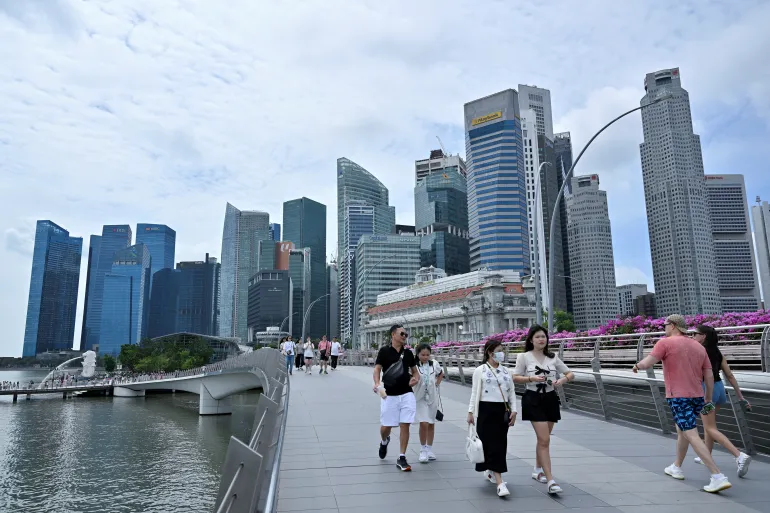Foreigners buying real estate in Singapore face a unique set of regulations and restrictions, reflecting the city-state’s efforts to balance open economic policies with the need to control property market dynamics. Understanding these regulations is crucial for any foreigner considering a real estate investment in Singapore.
Overview of Singapore’s Real Estate Market
Singapore’s real estate market is known for its high quality, strong regulatory framework, and significant investment opportunities. It attracts a wide range of foreign investors due to its stable political environment, strategic location, and robust economy. The market is segmented into public housing (primarily HDB flats) and private properties, including condominiums, landed properties, and commercial spaces.
Can Foreigners Buy Property in Singapore?
Yes, foreigners can buy property in Singapore, but with certain restrictions:
- Private Properties: Foreigners are generally allowed to purchase non-landed private properties like condominiums and apartments without prior approval from the Singaporean authorities.
- Landed Properties: Buying landed properties, such as bungalows, terrace houses, and semi-detached houses in Singapore is more restrictive. Foreigners need to obtain approval from the Singapore Land Authority’s Land Dealings Approval Unit (LDAU). Approval is granted based on several criteria, including the foreigner’s contribution to the economic benefit of Singapore.
- Executive Condominiums (ECs): Foreigners are eligible to buy ECs only after they are 10 years old, at which point they are privatized and treated as private property.
- HDB Flats: Foreigners cannot buy new HDB flats, which are subsidized by the government. However, they can purchase resale HDB flats if they form a Singapore Permanent Resident (SPR) family nucleus, meaning a family unit with at least one Singapore Permanent Resident.
Restrictions and Considerations
- Additional Buyer’s Stamp Duty (ABSD): Foreign buyers are subject to ABSD in addition to the usual buyer’s stamp duty. As of my last update, the ABSD for foreigners is significantly higher than for citizens or permanent residents. This serves as a cooling measure to regulate the market.
- Total Debt Servicing Ratio (TDSR): This applies to all buyers, including foreigners. It caps the amount individuals can spend on debt repayments to a percentage of their gross monthly income.
- Financing: Obtaining a mortgage as a foreigner can be more challenging. Banks may offer lower Loan-to-Value (LTV) ratios to foreigners, meaning they need to make a higher down payment.
- Repatriation of Funds: Foreign investors should be aware of the rules regarding the repatriation of funds, particularly if they plan to sell the property and take the proceeds out of Singapore.
Investment Considerations
- Market Trends: Foreign investors should study the Singapore property market trends, including price movements, rental yields, and future developments, to make informed decisions.
- Purpose of Buying: The purpose, whether for personal use or investment, will influence the type of property a foreigner may wish to purchase.
- Legal and Tax Implications: Understanding the legal and tax implications, including property taxes, rental income taxes, and estate duties, is crucial.
Process of Buying Real Estate as a Foreigner
- Property Search: Start with identifying suitable properties, keeping in mind the restrictions and personal preferences.
- Engaging a Real Estate Agent: Engaging a reputable agent can facilitate the process, especially for foreigners unfamiliar with the local market.
- Option to Purchase (OTP): Once a property is selected, the buyer usually pays a nominal option fee to reserve the right to purchase the property.
- Sale and Purchase Agreement: This is the formal contract for the property purchase.
- Financial Arrangements: This includes arranging for the necessary funds, mortgage applications, and dealing with the ABSD and other taxes.
- Completion: The process is completed with the payment of the remaining purchase price, and the property is legally transferred to the buyer.
Challenges and Pitfalls
- Navigating Regulations: The biggest challenge for foreigners is understanding and navigating the complex regulatory environment.
- Financial Commitment: The financial commitment, including the ABSD and higher down payment requirements, can be substantial.
- Cultural and Market Differences: Adjusting to the local real estate market dynamics and cultural nuances can be challenging.
Things for Thoughts
Foreigners can indeed buy real estate in Singapore, but they face more restrictions and higher costs compared to local buyers. The decision to invest in Singapore’s property market should be made after thorough research and consideration of the various legal, financial, and regulatory aspects.
It’s advisable for foreign investors to seek guidance from real estate professionals, legal advisors, and financial consultants to navigate the complexities of the Singapore real estate market. This investment, while potentially lucrative, requires a well-informed approach to maximize benefits and minimize risks.






